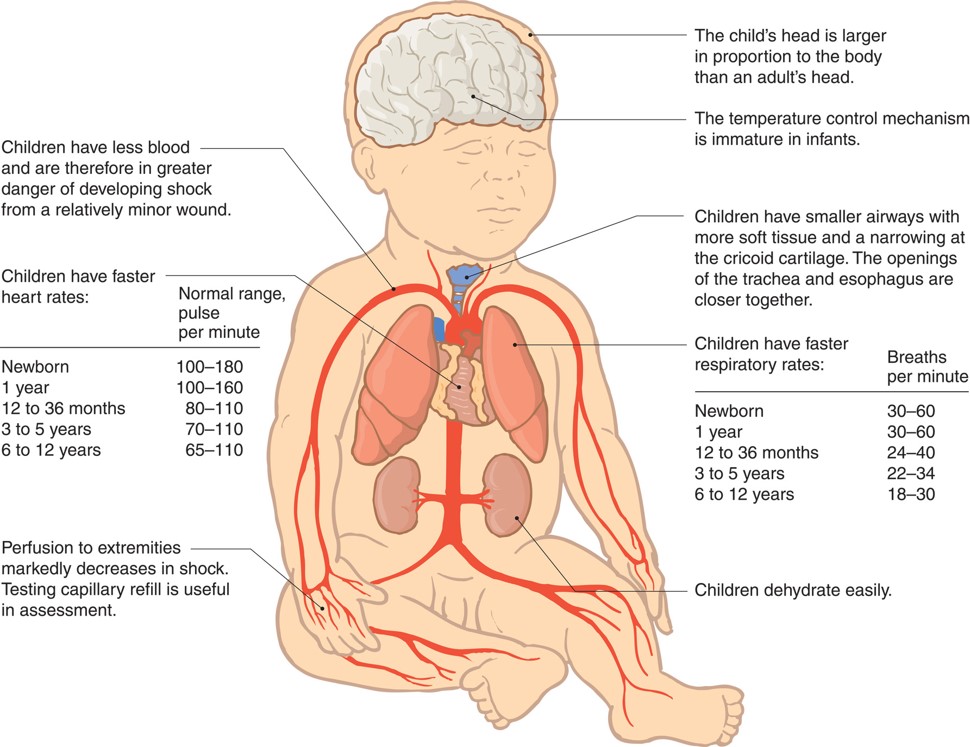 |
| Previous Image | Next Image |
| Description: The child's head is larger in proportion to the body than an adult‘s head. The temperature control mechanism Children have less blood is immature in inlanls. and are lherelore in greater danger at developing shock tram a relatively minor wound~ Children have smaller airways with more soft tissue and a narrowing at the cricoid canilage.The openings of the trachea and esophagus are closer together. Children have taster heart rates: Normal range. pulse —permmule Children have laster Newborn 100—130 respiratory rates: 53mins; 1 year 10m 60 p 12 to as months 30—1 to Newborn 30—60 3 lo 5 years 70—1 10 1 year 30—60 6 to 12 years 65—110 12 to 36 months 24—40 3 to 5 years 22—34 5 to 12 years 18—30 Perlusion to extremities markedly decreases in shock, Testing capillary refill is uselul in assessment Children dehydrate easily.
Picture Stats: Views: 188 Filesize: 149.15kB Height: 747 Width: 970 Source: https://biology-forums.com/index.php?action=gallery;sa=view;id=46906 |
